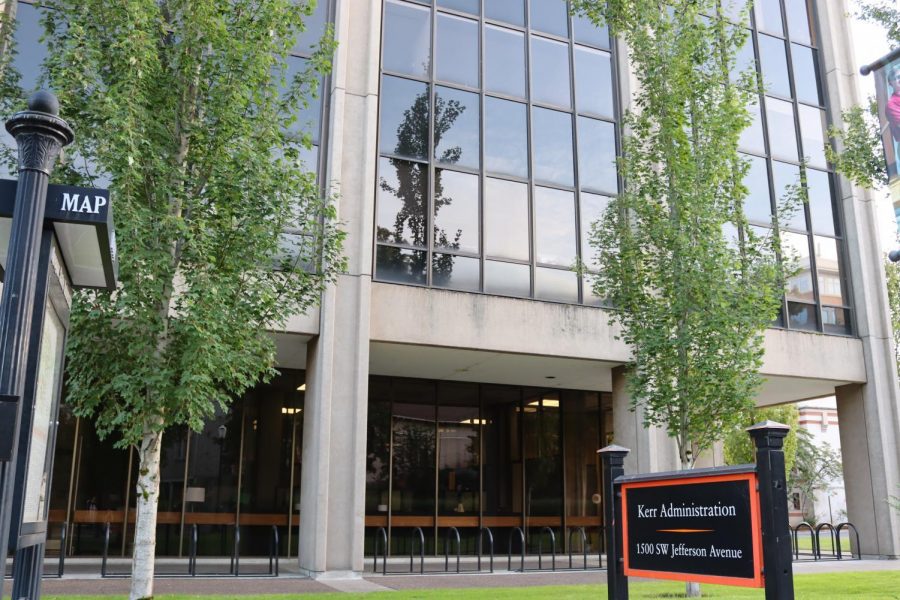OSU grading policies under COVID-19 impacted minimally
October 26, 2020
Professors and students at Oregon State University are dealing with changes within the satisfactory/unsatisfactory grading policies, absences to ill students, changes to assignment dates and to the remote learning structure due to COVID-19
Rebecca Mathern, associate provost and university registrar, ensures that OSU’s endeavors to provide services to students during these times are continuously being updated.
“The Keep Learning website, [for example], provides students with a lot of information about how to navigate these difficult times,” Mathern said.
“Because of the shift to remote learning for all courses during spring term 2020, there was a one-term exception for S/U grading which allowed students a longer time to select the S/U option and allow those grades to count towards degree programs,” Mathern said.
According to Mathern, this exception, however, does not include the current fall and upcoming winter term.
Absence forgiveness for students who have tested positive for COVID-19 has also become common amongst OSU’s professors.
“Faculty are giving strong guidance to their students regarding accommodations for those students affected by COVID-19,” Mathern said. “Each faculty member has the flexibility to work with their students independently and faculty have been given many resources on how to do so during this pandemic.”
For Frank John Bernieri, professor within the School of Psychological Science, the pandemic warranted a time-consuming schedule; “since March, I spend about eight to 10 hours preparing materials for every 50 minutes’ worth of Zoom streaming,” Bernieri said. “I also spend too much time (I would say) preparing emergency back up plans for each class in case internet connections fail, or I have technical difficulties.”
When it comes to late assignments, Bernieri said he is “certainly willing to issue an extension for any student who was adversely impacted by the pandemic.” However, Bernieri’s grading system didn’t change at all. Besides the additional support and accommodations to students who have pandemic related issues, Bernieri said he is generally not lowering standards or dropping assignments.
“In my opinion, diluting a course — i.e. asking a student to learn less — is the last thing we should do.” Bernieri concluded.
Daniel P. Gruss, advisor for New Media Communications, feels as if the pandemic did not affect his advising style. “Working during the pandemic was an adjustment,” Gruss said. “I embraced what might be the new ‘norm’ and I feel my proactive advising style is adaptable and works well in either environment.”
Besides technology glitches, Gruss feels confident in the positive aspects of online advising; “working in a remote environment has enhanced and allowed me to grow as a higher education professional in working with online students,” Gruss said.
Some professors and advisors feel as though technology can be a hindrance at times, but they have found ways to adjust.
“I’ve gotten the feeling in my classes that everyone has the attitude of, ‘We’re all in this lifeboat together. So, let us make the best of it.’ And that is exactly the optimal attitude to have in order for us to get through this,” Bernieri said.
























































































































